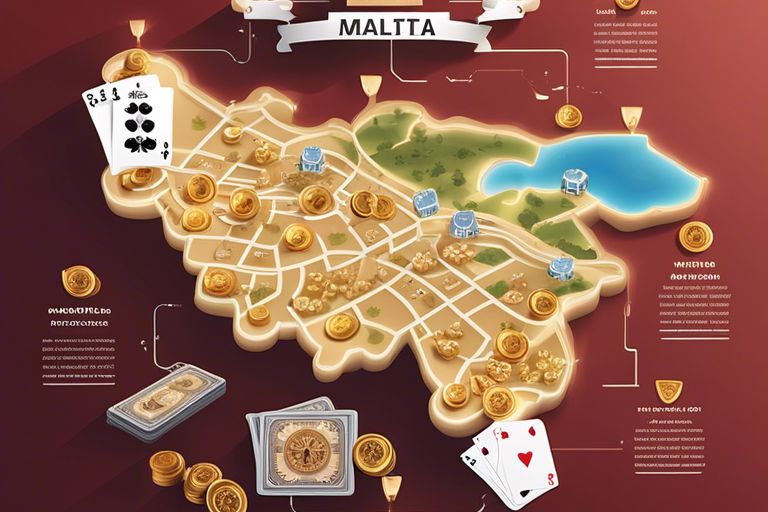Malta’s iGaming Taxation Policy

Today, we’re diving into the intricacies of Malta’s iGaming taxation policy. This small Mediterranean island has become a powerhouse in the online gaming industry, thanks in part to its favorable tax laws. However, there are important details that every iGaming operator and player should be aware of, as well as potential pitfalls to navigate. Let’s explore the benefits and potential challenges of Malta’s taxation policy for the iGaming sector.
Malta’s iGaming Industry
To understand Malta’s iGaming taxation policy, it’s essential to get a grasp of the country’s thriving iGaming industry.
The Rise of iGaming in Malta
An important factor in understanding Malta’s iGaming taxation policy is the exponential growth of the iGaming industry in the country. The iGaming sector has flourished in Malta over the past two decades, transforming the small Mediterranean island into one of the world’s leading hubs for online gambling and gaming operators. The favorable regulatory environment, pro-business attitude, and strategic location have all contributed to the rapid growth of the iGaming industry in Malta.
Attractions for iGaming businesses in Malta include favorable tax rates, a well-established regulatory framework, access to a skilled and multilingual workforce, a stable political climate, and a high standard of living. Malta’s proactive approach to technological innovation and its strong telecommunications infrastructure also make it an attractive destination for iGaming companies looking to establish their operations in Europe. The country’s reputation as a safe and secure environment for online gaming has further solidified its position as a premier iGaming jurisdiction.
Why Malta? Key Attractions for iGaming Businesses
The combination of low tax rates, a pro-business environment, and a skilled workforce make Malta an ideal location for iGaming businesses looking to thrive in a competitive market. The country’s strategic location in the heart of the Mediterranean, as well as its strong regulatory framework, are also key attractions for iGaming operators seeking a stable and supportive business environment.
Digging into the Taxation Policy
Even though Malta has a well-established reputation as a hub for iGaming companies, its taxation policy is not widely understood. In this chapter, we will delve into the details of Malta’s iGaming taxation policy to provide a comprehensive understanding of how it impacts businesses operating within the sector.
Understanding the Tax Structure
One of the key aspects of Malta’s iGaming tax policy is its competitive corporate tax rate of 35%. Malta also offers a tax refund system, whereby a company can apply for a refund based on the distribution of profits to shareholders. This system effectively reduces the effective tax rate to approximately 5-10%, making it an attractive option for iGaming companies looking to establish a presence in the region.
Additionally, companies operating in the iGaming sector may benefit from Malta’s participation exemption regime, which provides relief on taxation for certain types of income, such as dividends, interest, and royalties derived from qualifying holdings.
Comparisons with Other Jurisdictions
| Taxation Aspect | Malta |
| Corporate Tax Rate | 35% |
| Effective Tax Rate | Approx. 5-10% |
| Participation Exemption Regime | Available |
For instance, when compared to other jurisdictions such as the UK and Gibraltar, Malta’s corporate tax rate may appear higher. However, when factoring in the tax refund system and participation exemption regime, the effective tax rate may be lower in Malta, making it a viable choice for iGaming companies seeking tax-efficient solutions.
Impacts of the Tax Policy
Keep in mind the tax policy in Malta has had significant impacts on the iGaming industry and the country’s economy as a whole.
On the iGaming Industry
The iGaming industry in Malta has experienced both positive and negative impacts from the tax policy. The introduction of the gaming tax has caused concern among iGaming operators, as it has increased operational costs and reduced profit margins. However, the industry has also seen some positive effects, such as regulatory stability and the potential for long-term growth in a well-established jurisdiction.
On Malta’s Economy
iGaming has become an integral part of Malta’s economy, and the tax policy has influenced its economic landscape. The new tax policy has resulted in a boost in government revenue, but there are concerns about the potential impact on job creation and investment in the iGaming sector.
Any changes to the tax policy could have ripple effects on Malta’s economy, influencing not only the iGaming industry but also related sectors such as tourism and hospitality.
To wrap up
Taking this into account, Malta’s iGaming taxation policy is seen as a favorable and attractive option for businesses in the industry. Its competitive tax rates, incentives for companies to relocate, and stable regulatory framework have positioned Malta as a leading hub for iGaming operators. The government’s commitment to supporting the industry and fostering a business-friendly environment further solidifies the appeal of Malta as a prime location for iGaming businesses. With its strategic advantages and conducive tax policies, it is no wonder that many iGaming companies continue to choose Malta as their base of operations.
FAQs:
What makes Malta an attractive destination for iGaming businesses?
Malta offers low tax rates, a pro-business environment, strategic location, and a skilled workforce, making it ideal for thriving in the competitive iGaming market.
How does Malta’s iGaming taxation policy compare to other jurisdictions like the UK and Gibraltar?
While Malta’s corporate tax rate may seem higher, factors like the tax refund system and participation exemption regime result in an effective tax rate that can be lower, making Malta a viable choice for tax-efficient solutions.
What are the key aspects of Malta’s iGaming tax structure?
Malta boasts a competitive corporate tax rate of 35%, a tax refund system reducing the effective tax rate to 5-10%, and a participation exemption regime offering relief on certain types of income for iGaming companies.
How has Malta’s tax policy impacted the iGaming industry?
The tax policy has both positive and negative effects, with increased operational costs and reduced profit margins, but also providing regulatory stability and potential for long-term growth in a well-established jurisdiction.
What role does Malta’s iGaming sector play in the country’s economy, and how does the tax policy affect it?
iGaming is integral to Malta’s economy, contributing to government revenue. However, concerns exist regarding potential impacts on job creation and investment in the iGaming sector due to changes in the tax policy.
Recommended Posts

Legal Nuances of Operating an Online Casino
May 17, 2024

The World of Wearable iGaming Tech
May 17, 2024

Malta’s Coastal Drives for Road Trippers
May 17, 2024




